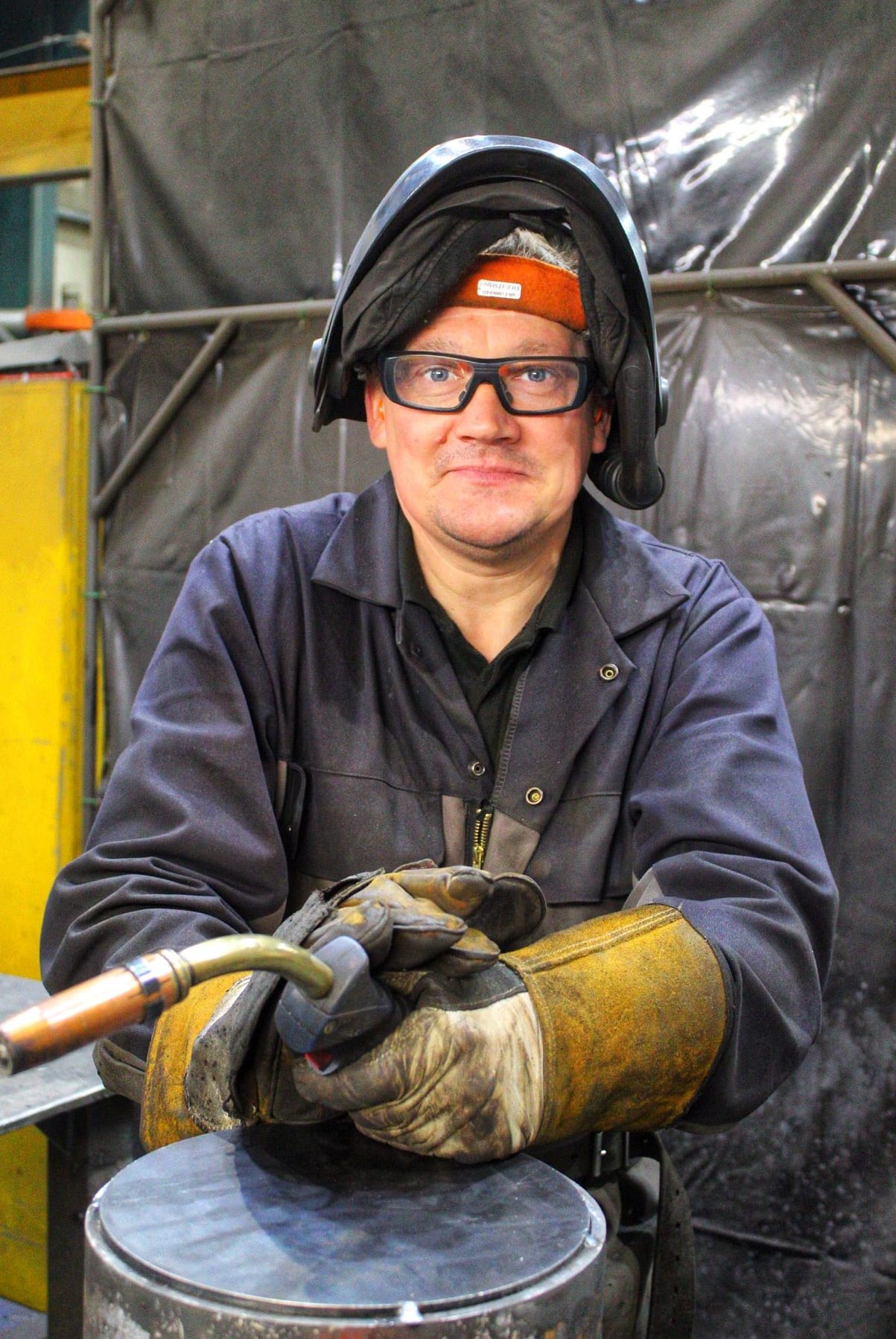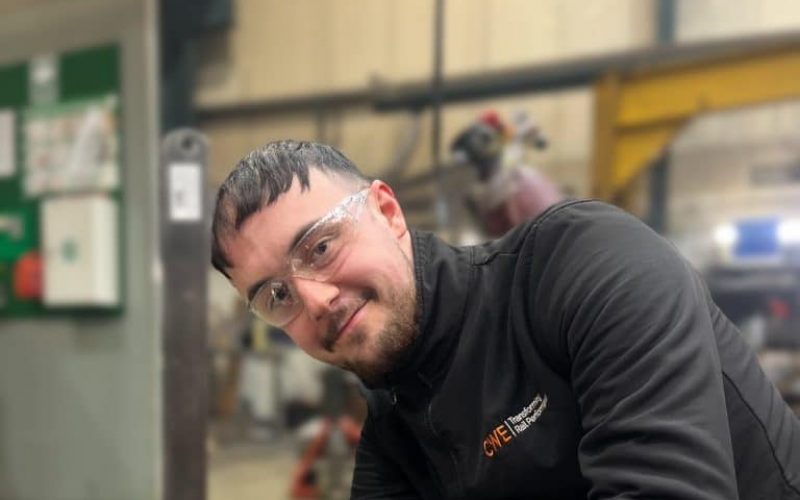National Apprenticeship Week – The Success of James
5th February, 2026
Our apprenticeship programme is one of our proudest achievements. Having started his career as an apprentice himself, our Managing Director, Dave Bates is
29th November, 2023
At CWE, we’re proud to be part of the UK rail industry. We believe it’s a great place to work and that our friendly team showcases the best of the sector. In this series, Life at CWE, we’ll be providing a glimpse into the life of our staff. We hope this will give readers a sense of the work our brilliant people do and the diverse range of talents and skills that make up the world of rail engineering.
In this edition, we speak to one of our welders, Lee McKie. Lee gives us an insight into a typical day at CWE, discusses his core responsibilities and shares some of the key attributes of his role.
How did you settle in at CWE?
Settling in at CWE has been a smooth journey for me. I’m approaching my third year with the company, CWE was a little bit different when I first started, as we were not heavily involved in rail work. However, over time, we’ve diversified into this sector, and I feel I’ve adapted well.
What are your core responsibilities?
For my core responsibilities, I ensure my welding work is up to scratch, keep an eye on others’ work, and prioritise safety on the shop floor. Any concerns I come across; I report to management. Currently, I’m also taking on the responsibility of training an apprentice. It’s a bit challenging because I’m also trying to do my job at the same time but that’s how I was taught, and it’s the most effective way to learn.

What do you find most rewarding about your job?
The most rewarding part of my job is seeing a project coming into the workshop and witnessing its complete journey, from construction to dispatch. Knowing I’ve dedicated my time and effort to the job is truly fulfilling. Whether I’m working as part of a team or independently, I contribute to the shop floor, ensuring the job moves forward efficiently- making it safer and as fast as possible, overcoming any hurdles that may cause delays.
What have you brought to CWE?
What I’ve brought to CWE is my knowledge- I’ve been welding since I was 16, accumulating 30 years of experience. I approach jobs differently because I was taught by my dad, who was a plater welder and a boiler maker. They don’t teach those methods much anymore due to changes in the industry. Passing on that unique knowledge, working collaboratively, and contributing my insights to bring a job to its best form are aspects I find important. I always try to lend a hand and share my experience with other people on the shop floor.
Which of your personal skills help you to fulfil your role?
I think that I have the ability to pick things up easily. While I’m not a qualified plater, I’ve independently acquired knowledge in the field. I’ve taught myself to interpret drawings from various jobs. I excel in the prep work for welding, making sure it’s nice and clean and it’s marked out properly. When setting up a job for someone else to weld, I’m confident that my prep work ensures it’s ready for a seamless welding process.
What is one tip you would give to another welder?
I think that’s hard to answer because everyone works in different ways. You can only learn from experienced people, like my dad, a skilled boiler maker with a background in different industries, including crafting boilers for steam trains. My tip, especially for those new to the industry, is: When in doubt, ask. There’s no shame in asking for advice. Even after 30 years in this field, I still ask questions. For example, I know that I can always go to Col, he’s served long in this company- he knows the company inside out.
What does a typical day look like in your job?
A typical day in my job is all about staying productive. If there’s no welding on the agenda, I make it a point to find other tasks to tackle and pitch in wherever help is needed. I’m committed to doing whatever it takes to push the company forward. Seeing this company thrive is not just for its benefit but also for my own. I’m always mindful of securing my job and keeping a roof over my head.

5th February, 2026
Our apprenticeship programme is one of our proudest achievements. Having started his career as an apprentice himself, our Managing Director, Dave Bates is
26th January, 2026
At CWE, we’re proud to be part of the UK rail industry. We believe it’s a great place to work and that our
22nd January, 2026
✨ Wrapping Up 2025: A Year of Growth, Learning & Momentum ✨ As 2025 comes to a close, we reflect on the milestones,